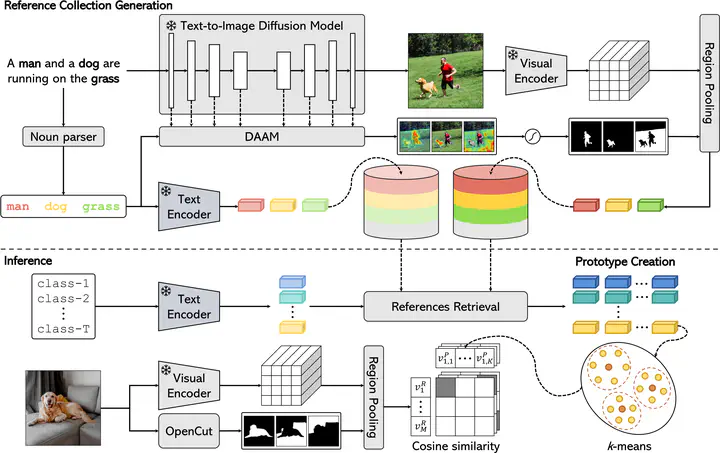 Overview of the proposed FOSSIL approach for training-free Open-Vocabulary Semantic Segmentation.
Overview of the proposed FOSSIL approach for training-free Open-Vocabulary Semantic Segmentation.Abstract
Unsupervised Open-Vocabulary Semantic Segmentation aims to segment an image into regions referring to an arbitrary set of concepts described by text, without relying on dense annotations that are available only for a subset of the categories. Previous works rely on inducing pixellevel alignment in a multi-modal space through contrastive training over vast corpora of image-caption pairs. However, representing a semantic category solely through its textual embedding is insufficient to encompass the wide-ranging variability in the visual appearances of the images associated with that category. In this paper, we propose FOSSIL, a pipeline that enables a self-supervised backbone to perform open-vocabulary segmentation relying only on the visual modality. In particular, we decouple the task into two components: (1) we leverage text-conditioned diffusion models to generate a large collection of visual embeddings, starting from a set of captions. These can be retrieved at inference time to obtain a support set of references for the set of textual concepts. Further, (2) we exploit self-supervised dense features to partition the image into semantically coherent regions. We demonstrate that our approach provides strong performance on different semantic segmentation datasets, without requiring any additional training.